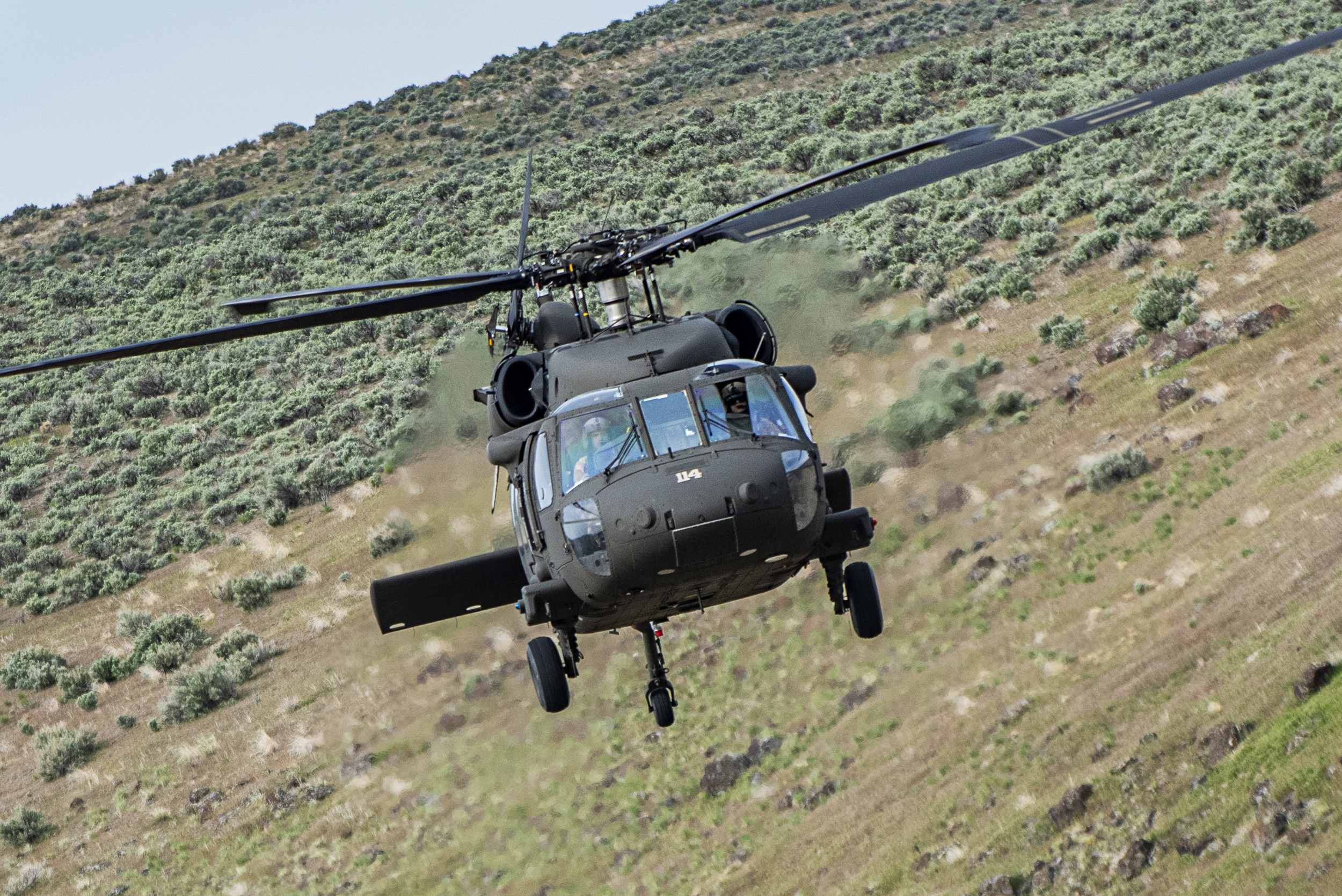The UH60: A Comprehensive Guide to Its Capacities and Advancements
The UH-60 helicopter, a foundation of United state Army air travel considering that its inception, exhibits a mix of flexibility and advanced design. Understanding the full scope of the UH-60's development discloses insights into the future of armed forces air travel and the obstacles that lie in advance.
Introduction of the UH60
The UH-60 Black Hawk is a functional multi-role helicopter designed to sustain a vast array of army operations. Created by Sikorsky Airplane in the late 1970s, the Black Hawk has actually considering that become a keystone of U.S. Army air travel and has actually been adopted by many military forces internationally. Its style emphasizes speed, agility, and the capacity to operate in varied settings, making it appropriate for missions ranging from troop transportation to medical discharge.
The helicopter features a durable airframe and advanced avionics, which improve its functional performance in both day and night conditions. Its twin-engine configuration makes certain dependability and remarkable efficiency, enabling it to do in difficult circumstances, including warm and high-altitude weather atmospheres. The Black Hawk's roomy cabin can accommodate numerous payloads, permitting for flexibility in objective execution.
For many years, the UH-60 has actually undergone multiple upgrades, incorporating technical innovations to improve its abilities. UH60. This adaptability ensures that the Black Hawk remains relevant in the progressing landscape of military procedures, preserving its condition as a vital possession for armed forces around the globe. Its comprehensive functional background highlights its relevance in contemporary army air travel
Key Capabilities
Amongst the many attributes that add to the UH-60 Black Hawk's sustaining success is its remarkable selection of essential abilities. Popular for its versatility, the UH-60 stands out in various functional environments, meeting functions such as troop transport, clinical discharge, and logistical support. Its capacity to bring a considerable haul, typically approximately 11 soldiers or up to 8,000 pounds of freight, enhances its efficiency in varied objectives.
The helicopter's phenomenal rate, with a maximum cruising speed of around 150 knots, permits fast deployment and extraction of employees. Furthermore, the UH-60 boasts sophisticated maneuverability, allowing it to browse challenging surfaces and execute vital objectives in confined spaces.
Equipped with durable avionics and trip control systems, the Black Hawk ensures trustworthy performance under unfavorable climate condition and during evening operations. Its range, about 400 maritime miles, even more expands operational capabilities, permitting it to reach remote places effectively.
Technical Innovations
Incorporating sophisticated technology, the UH-60 Black Hawk has undergone significant technologies that enhance its functional effectiveness and security. Among the most notable advancements is the integration of sophisticated avionics systems, that includes electronic flight control systems and multifunction display screens - UH60. These systems offer pilots with real-time data, boosting situational recognition and decision-making throughout goals
Additionally, the Black Hawk features boosted interaction systems that facilitate seamless coordination with ground forces and command facilities. These systems, including satellite communications and safe voice capacities, ensure trustworthy connection in varied operational environments.
The airframe has also been upgraded with improved composite materials, which reduce weight while increasing structural integrity. This innovation contributes to improved gas performance and total efficiency. The helicopter is geared up with innovative blades modern technology, consisting of the four-blade main rotor system, designed to maximize lift and lower noise.
The unification of evening vision safety glasses (NVG) suitable cabin and external lighting systems allows for boosted night operations, additionally broadening goal capabilities. Overall, these technological advancements place the UH-60 Black Hawk as a functional and durable platform, all set to meet the challenges of modern war and altruistic missions.
Functional Background
Given that its intro in the late 1970s, the UH-60 Black Hawk has actually established a recognized functional background identified by its flexibility and dependability throughout a varied series of goals. Developed for utility transport, the Black Hawk has played a pivotal explanation role in numerous armed forces procedures, including air attack, medevac, and logistical assistance.
The aircraft acquired importance throughout the united state armed forces interventions in Panama and the Gulf War, showcasing its capacity to execute under intense conditions. Its advanced avionics and robust layout have actually allowed effective missions in atmospheres ranging from metropolitan landscapes to tough terrains. The UH-60 has actually adjusted to developing battle scenarios, incorporating new technologies and capacities over the decades.
Furthermore, the Black Hawk has actually served allied forces in various global problems, strengthening its condition as an international military possession. Humanitarian missions, disaster relief initiatives, and peacekeeping operations even more highlight its versatility and dedication to offering both private and army needs. Today, the UH-60 remains to be an essential element of U.S. Army air travel, mirroring a legacy of operational quality and technology that has actually withstood for over 4 years.
Future Advancement

As the UH-60 Black Hawk remains to copyright its legacy in military operations, future developments are poised to enhance its capabilities better. The U.S. Military and its partners are exploring innovative technologies that aim to enhance both efficiency and versatility. Secret locations of emphasis consist of boosted avionics, boosted engine performance, and boosted payload capacity, which will make it possible for the Black Hawk to perform a more comprehensive variety of missions.
One substantial development is the integration of synthetic intelligence (AI) systems to aid pilots in navigation and mission planning, consequently reducing cognitive workload and increasing functional efficiency. Furthermore, the unification of advanced products in airframe design is expected to visit site improve toughness while simultaneously decreasing weight.


As the military landscape develops, the Black Hawk will certainly remain to adjust, enhancing its status as a crucial property for air find more information movement and battle operations in the years to find.
Conclusion
Continuous technologies, including the integration of AI and hybrid-electric systems, place the UH-60 for improved efficiency in future battle scenarios. As army demands develop, the UH-60 will certainly continue to be a keystone of aerial operations.
